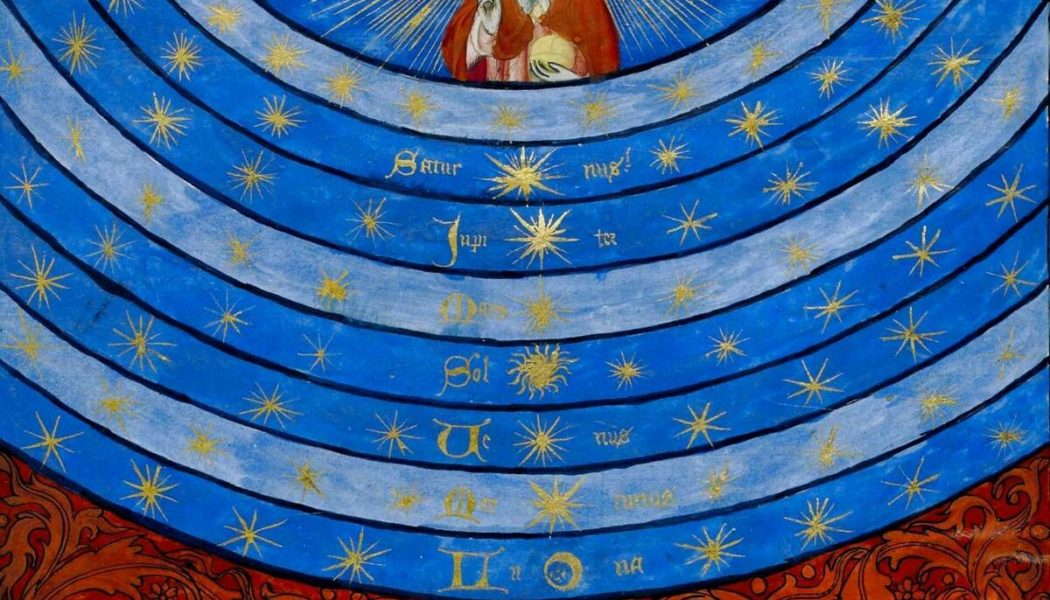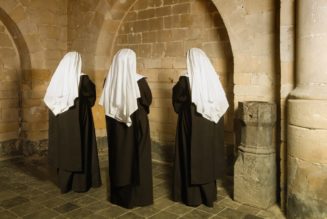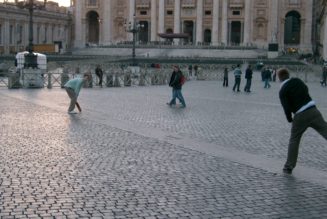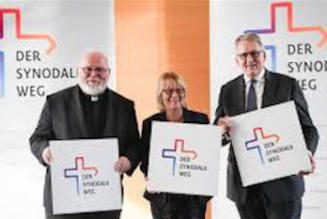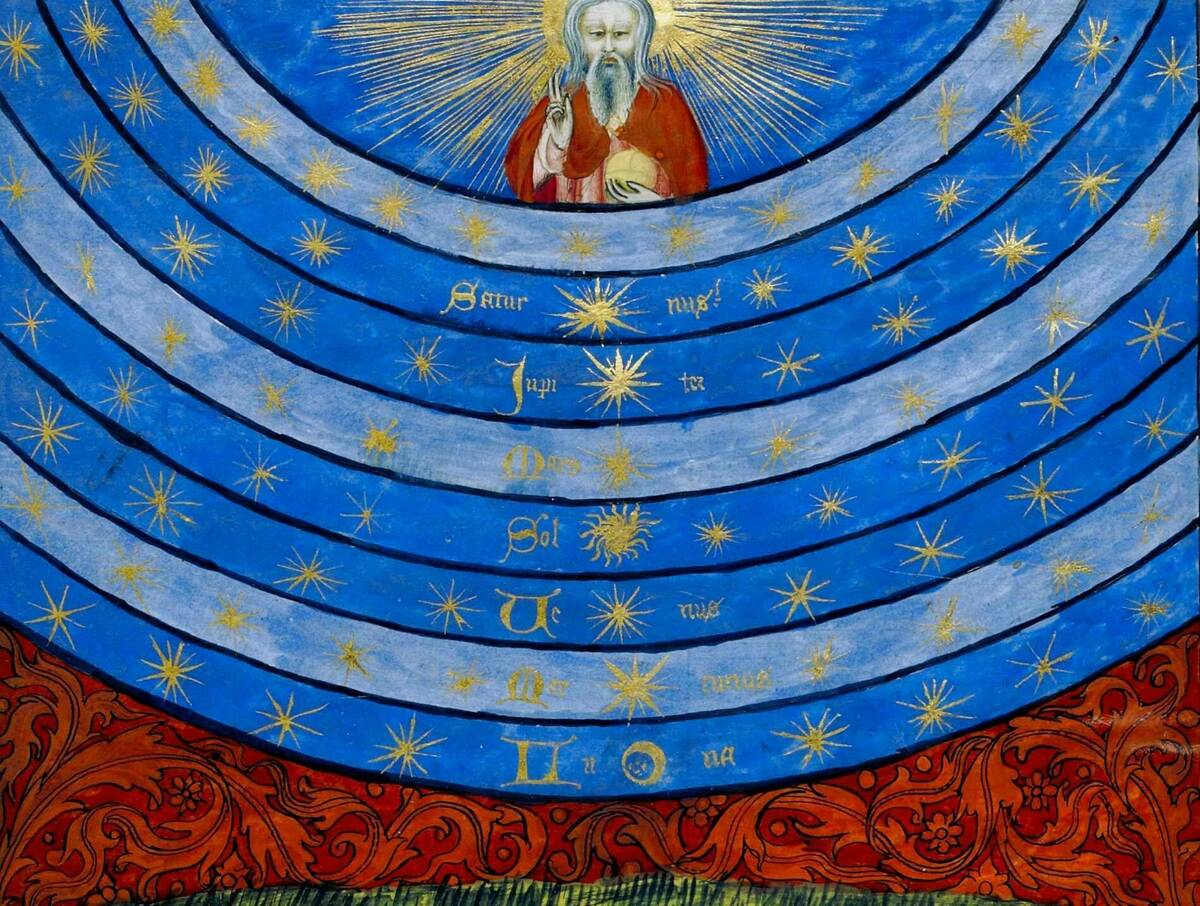
If all of human knowing is done through some combination of faith and reason, it is essential for Catholic teachers to consider the particular synthesis of Christian faith and reason, the worldview that follows from this synthesis, and its tremendous impact on human knowing and human culture. Indeed, it is difficult to imagine any worldview with a comparable impact across the whole range of human endeavors. As the American Catholic writer Walker Percy cheekily put it when asked about the reasons for his own conversion to Catholicism: “What else is there?”
In fields as diverse as philosophy, social outreach, art, literature, science, politics, law, healthcare, and education (to name just a few), the contributions of Catholic individuals, institutions, and religious orders have been decisive, even world-shaping. Consider names like Augustine, Dante, Mother Teresa and the Missionaries of Charity, Galileo Galilei, Caritas International, Dorothy Day, Thomas Aquinas, Sigrid Undset, Bartolomeo de las Casas, Michelangelo, Shusako Endo, Flannery O’Connor, Nicholas Copernicus, Gerard Manley Hopkins, Jacques and Raïssa Maritain, J. R. R. Tolkien, The Society of St. Vincent de Paul, Elizabeth Anscombe, Marshall McLuhan, Ignatius of Loyola and the Jesuits, Edith Stein, Georges Lemaître, perhaps, some argue, even Shakespeare. The fact that a list like this is completely inadequate and could be multiplied ten times over while still leaving out essential contributions is itself telling.
And, if we permit ourselves to include the contributions of non-Catholic Christians like C. S. Lewis, William Wilberforce, Elizabeth Fry, Fyodor Dostoyevsky, Harriet Tubman, Desmond Tutu, Martin Luther King Jr., Corrie ten Boom, or Johann Sebastian Bach—people who were deeply shaped by the Gospel—the list is even more impressive. Even non-Christians, like Gandhi, have been deeply impacted by the Gospel in ways that have literally changed the world.
If a student graduates from a Catholic high school without having been given some sense of the breadth of the impact that Catholicism has had on the world, that is nothing less than a scandal. The names above, and dozens more, need to be in our curricula and our lesson plans, on posters on our walls and on our lips. While such a prodigious list is not in itself conclusive evidence of the truth of the Gospel, it is at least a compelling reason to take the claims of Catholicism seriously in a world where students are more likely to hear that their religion is obsolete bronze-age mythology than to be exposed to their own incomparable heritage.
Being informed about Catholicism’s rich social, intellectual, and artistic heritage is important. But it is also important to ask just what it is about Catholicism that produced such a heritage in the first place. If we want to convey a genuinely Catholic worldview in our teaching, we need to look deeper than a list of achievements and consider the context that nurtured such a list. As the steady flow of artistic and intellectual converts to the Church down through the ages demonstrates, Catholicism provides a deeply coherent and deeply beautiful vision of reality. It is a vision that, understood in its full depth, satisfies the human person—body, mind, and spirit.
And so, we should be interested not merely in listing and describing Catholic achievements, but in exploring a Catholic vision of the world as it applies to each subject. We should want to come to understand just why it is that Catholicism makes everything interesting.
Boredom
Without a narrative, life has no meaning. Without meaning, learning has no purpose. Without a purpose, schools are houses of detention, not attention.
—Neil Postman
One of the great challenges of education today is responding to meaninglessness and purposelessness. Public education, in particular, struggles to justify itself—at least to students—because it can offer no clear goals outside of the economic and the social. Such utilitarian goals are not enough to capture the imagination of young people. They might feel immense pressure to do well at school because of real or imagined economic and social consequences. But they are unlikely to be excited about learning because they find the material itself is fascinating. Indeed, teachers can perceive the sense of meaninglessness pervading much of contemporary culture, including education, in the boredom and distraction on the faces of their students. Teachers often report that students today are simply more and more bored.
The teacher imbued with a Catholic worldview will not be at all surprised at this. The reduction of all meaning to utilitarian concerns and personal preferences is bound to bore. People naturally ask, “What does it all mean?” To be told, or to have it implied, that it means nothing so you might as well do what you can to get ahead is deeply unsatisfying.
Worse is to be told that we each get to (that is, have to) make our own meaning. A recent advertising campaign for cosmetics featured the tagline, “You are what you make up!” In the face of meaninglessness, we are to create our own meaning, like God, ex nihilo—out of nothing. While this is presented as a radical act of freedom, it is not experienced as genuinely creating meaning, but as destroying the very possibility of meaning. If I simply make something up, I know, deep down, that it is not true. I could change it tomorrow and change it again the next day. Anything that arbitrary cannot satisfy.
Indeed, not only does it not satisfy; it is the cause of great anxiety, as is obvious to any teacher today. When we tell young people to create their own meaning, purpose, and identity, we give them an impossible task. For whatever they decide might have been otherwise; that is, it might be wrong. But when you yourself are the supposed measure of all things, there is no way to know. Talk about laying heavy burdens and then not lifting a finger to help (see Matt 23:4)!
Built For Truth
It is gratifying to realize that, in our day too, the Christian vision, presented in its breadth and integrity, proves immensely appealing to the imagination, idealism and aspirations of the young, who have a right to encounter the faith in all its beauty, its intellectual richness and its radical demands.
—Pope Benedict
People need reference points outside of themselves if life is to mean anything. Or, to put it another way, humans are built for truth. We want to know what is really the case, not what we or someone else made up. Most of us, most of the time, would prefer to know an unpleasant truth than to believe a pleasant lie. And we intuitively recognize the tragedy of preferring falsehood. The genius of The Cardigans’ hit song “Lovefool” is that it shows how sad and desperate a person who prefers falsehood to truth really is. None of us wants to be in the place of the singer who begs to be lied to—“fooled”—about her beloved’s real feelings.
Even those sophisticates who tell us things like “all truth is relative,” or “truth may exist, but we have no real access to it,” or “any claims to truth are simply disguised claims to power,” believe it is true that all truth is relative, that it is true that we have no real access to truth, that it is true that all claims to truth are claims to power. We are incorrigible. We seek truth even in the denial of truth. We can’t help ourselves. We’re built for it.
This deep conviction that humans are made for truth, that we thrive on it, is one of the underlying foundations of the Catholic vision of the world and therefore of Catholic education. Education is about the pursuit of truth because knowing who we are, who God is, and what this world God created is like are prerequisites for human flourishing, both here and hereafter. And, once the notion of truth becomes problematized for students, education gets reduced to deconstructing the narratives that used to hold meaning or just learning enough technical skills to get a decent job. The real questions that make human life interesting and exciting are ignored. And boredom and cynicism set up shop.
The same commitment to truth that is at the foundation of a Catholic education is at the foundation of the Catholic intellectual heritage we highlighted earlier. Catholicism makes everything interesting because, first of all, it insists that truth matters. Only from within a worldview that believes that truth is outside of myself and that I am responsible to it can such a wealth of intellectual excellence emerge. And, in addition to this insistence that truth exists and we can really know it, there are also particular truth claims of Catholicism that make art or math or health interesting.
A Christian Worldview
It is hard for us to imagine that subjects like science or history, whose existence we take for granted, might not be. Of course, the things we study in science class (the natural world) and history class (the series of events in time) exist. But there have been times and places where what we call history and science—that is to say, the frameworks we use for making sense of the natural world and the series of events in time—either did not exist at all as conceptual categories or did not look very much like what we understand by those terms.
Without the biblical worldview, the frameworks we take for granted for approaching knowledge in these areas could not have emerged. Science did not just happen everywhere that humans engage the natural world. It emerged only once, in a very specific context. It was no accident that its emergence was in Christian Europe. And the very meaning of the word history as we use it today has deep biblical roots. What is it about the Catholic worldview that led us to think of science and history the way we do?
At the heart of the Christian worldview is the biblical conviction that God is God and creation is not God. This might seem obvious, but it is actually quite radical. The transcendence of God—represented, for example, by the Old Testament image of the burning bush, where divinity irradiates but does not consume creation—has been a difficult thing for humanity to consistently uphold. We humans are generally tempted by various forms of pantheism that identify God with creation. The true idea that God is in everything easily becomes the false idea that God is everything; that there is no real distinction between God and the universe or between God and us. This is as true of ancient religious conceptions as it is of many modern ones. But Christianity, following Judaism, radically rejects such notions. And this has serious consequences for thinking about science and history.
Science
Why is God’s transcendence important? First of all, it demythologizes the material world. Have you ever noticed what the Book of Genesis calls the sun and the moon? Simply “the greater light” and “the lesser light.” Why? The first chapter of Genesis is an anti-Babylonian creation myth.
The Jews were living in captivity in Babylon when Israel’s creation story reached its final form, and in Babylon, as in a great many human cultures, the sun and moon were believed to be divine. The Jews needed to teach their children that only God was divine, and so they would not even name the sun and moon.
It is very tempting to worship the natural world. It is full of mystery and power. It sometimes behaves like a god whose wrath needs to be appeased. But once the material world is not worshiped as a god, it can be studied as a creature. And then you find that, the more you look into it, nature is not capricious and arbitrary but orderly and intelligible. The distinction between creature and Creator that the Judeo-Christian revelation insists upon is the deep root of what we call science.
History
Christianity is not one of the great things of history; it is history that is one of the great things of Christianity.
—Henri de Lubac
A second reason that God’s transcendence is important for us is that it guarantees human freedom. The great problem of free will—how can humans be truly free if God is all-powerful?—is only resolvable if God’s way of being is so different from creation’s way of being that it is not in any competition with it whatsoever. When the early Church was trying to articulate its experience of Jesus in terms of Jesus’s relationship to God, there was a ready-made option in the ancient world.
That world knew about demi-gods, heroes like Hercules with a divine father and a human mother. The offspring of a Greek god and a human was semi-divine. That is because the Greek gods did not transcend creation. They were just as much a part of it as everything else and, while they were immensely powerful, they could not escape its basic laws. A Greek god interbreeding with a human was a bit like a horse and a donkey producing a mule. The result was a hybrid—odd, perhaps, but completely intelligible within worldly categories.
The Church rejected this option and instead said something heretofore unheard of. Jesus was not fifty percent human and fifty percent divine. He was fully human and fully divine. But that is only possible if humanity and divinity are such different kinds of things that they cannot be in competition. The difference between divinity and humanity is more like the difference between color and shape than the difference between two animal species that might interbreed. A ball can be fully red and fully round, because color and shape operate so differently from one another that they simply cannot be in competition.
Because God is so completely transcendent, his freedom is simply not in competition with our freedom. God is able to freely work through human freedom without overruling it. He shows us this in a stunning way on the cross. At Calvary humans have their way with God. He does not resist them. He tells Pilate explicitly that his Kingdom—that is, his power, his very way of being—is not of this world.
Instead, Jesus is operating at a level that can absorb and transform human action. He does not need to overrule us. And so, God saves us through our own broken freedom, not by taking it away or defeating it, but by transcending it, which God can do only because he is even more free than we are.
Good parents and good teachers manage to image this in their best moments, freeing children to freely choose the good. Just think of the last time you were able to redirect a frustrated child instead of getting locked in a battle of wills. Notice, we can only do this when we are more free in the situation than the child we are freeing. If we are in unfreedom, we cannot.
Because God’s transcendence allows creation to be creation, we have science. Because God’s transcendence allows humans to be really free, we have history. If we do not believe in human freedom, we will not believe in history, at least not as we have come to use the word. Of course, we could still believe that events happen and that we can write them down and remember them.
But “history” as we have come to know it means the possibility of something new, that freedom—human and divine!—can make a real difference. History is open-ended and responsive. It is something that can be shaped, not just recorded. History as we understand it is not simply a series of events in time; it is, in fact, the very opposite of fate.
Every Subject
What about things like novels and autobiographies? Did we ever wonder where they came from? Or do we assume they, too, just are? Art forms also emerge in particular cultural matrices. Novels as we know them have a similar root to history. They are possible as an art form because of our biblical belief that humans are free and that our freedom is not arbitrary but directed to some real goal. And autobiographies—Saint Augustine’s Confessions is often considered the first true autobiography—only exist in a culture that believes in the irreplaceable value of every individual human being.
Everyone believes some story about the world. It is impossible not to. And that story shapes how they view everything else. Moreover, every such story will involve the interplay of faith and reason. This does not mean that every story is equally true. People make mistakes of trusting and of reasoning all the time. Nor does it mean they are all false. One way to discern the truth of a story is to see how it all hangs together. What kind of worldview follows if this is true? If I believe this, what are the implications for everything else?
A Catholic education needs to answer this question. If Catholicism is true, what follows? It cannot be separated from the rest of life and learning. It will impact our understanding of science, of history, of math, of art, of health, of business, of sport, of ethics, of everything.
EDITORIAL NOTE: This essay is excerpted from Educating for Eternity: A Teacher’s Companion for Making Every Class Catholic, used with permission of Our Sunday Visitor, ALL RIGHTS RESERVED.
